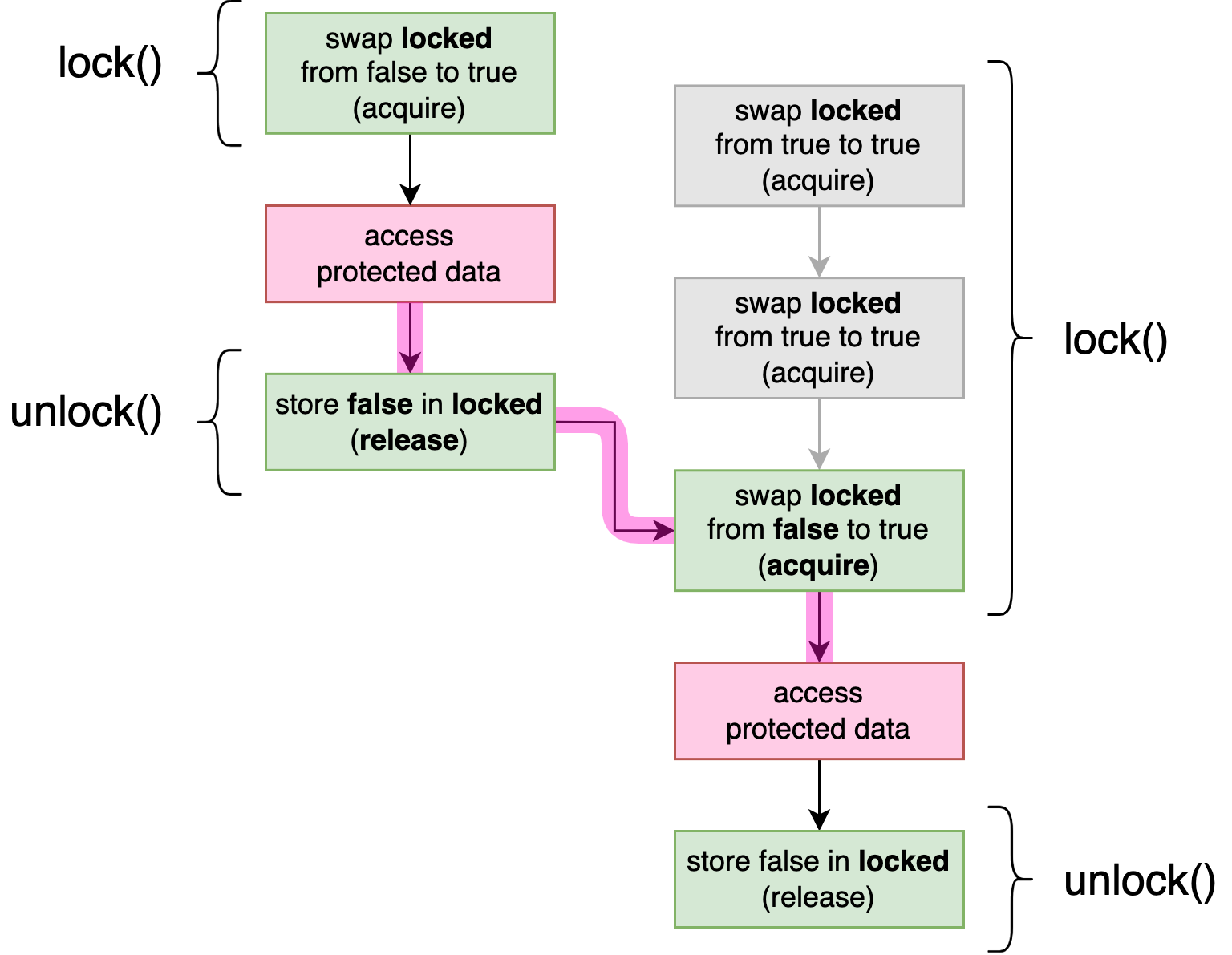[Day29] Read Rust Atomics and Locks - A Minimal Implementation of Spin Lock
by Mara Bos
At Topic: Chapter 4. Building Our Own Spin Lock, A Minimal Implementation
Recall
What is spin lock?
Instead of putting the thread to sleep, the thread will continuously attempt to lock the locked lock
When to use spin lock?
If a lock is only ever held for very brief moments and the threads locking it can run in parallel on different processor cores.
Notes
// source: https://github.com/m-ou-se/rust-atomics-and-locks/blob/main/src/ch4_spin_lock/s1_minimal.rs use std::sync::atomic::AtomicBool; use std::sync::atomic::Ordering::{Acquire, Release}; pub struct SpinLock { // use AtomicBool since we want more than one thread to be able to interact with it simultaneously locked: AtomicBool, } impl SpinLock { // ensure initialization at compile-time pub const fn new() -> Self { Self { locked: AtomicBool::new(false) } } pub fn lock(&self) { while self.locked.swap(true, Acquire) { // keep trying to set the value to true until it succeeds std::hint::spin_loop(); } } pub fn unlock(&self) { self.locked.store(false, Release); } }
std::hint::spin_loop(): a special instruction that causes the processor core to optimize its behavior for such a situation
By acquire and release memory ordering, after locking it again, we can safely assume that whatever happened during the last time it was locked has already happened.
See:
